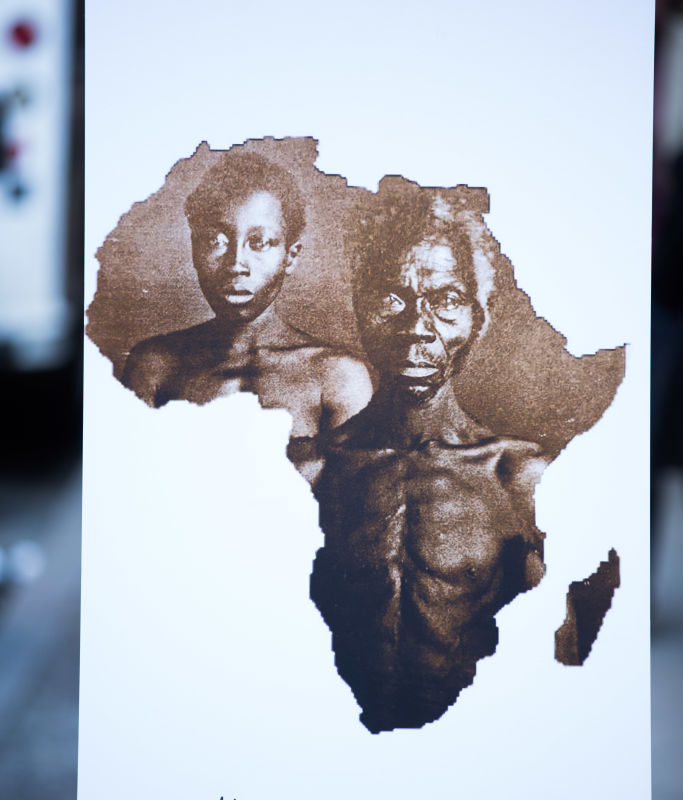Court Clears The Way For Harvard To Be Sued For Profiting From Photos Of Black Woman’s Enslaved Ancestors
Shonrael Lanier, a descendant of former slave Renty Taylor, holds a sign at a press conference held at Harvard University to talk about the lawsuit that the family has filed against the university in Cambridge, Massachusetts, on June 20, 2019. | Source: Boston Globe / Getty
Being a Black American comes with developing a clear understanding of how we were brought into this country, sometimes being reminded of it on a daily basis.
For one Connecticut woman, a photo of her enslaved ancestors that’s been used heavily by Harvard University in campus materials and even on a book cover has led her to file a lawsuit that was recently approved by the Massachusetts Supreme Judicial Court.
Today’s landmark ruling from the Mass. Supreme Court ruled in favor of Tamara Lanier, the direct descendent of a slave, Congo “Papa” Renty, allowing Lanier her day in court against Harvard for their ongoing use and monetization of her ancestor’s image! pic.twitter.com/L3SKig1Kvu
— Ben Crump (@AttorneyCrump) June 23, 2022
Following the ruling last Thursday, Tamara Lanier is moving forward with suing the Ivy League college for unlawfully using images of her ancestors Congo “Papa” Renty and his daughter.
The photos are believed to be some of the earliest images ever captured of Black people during the slavery era, taken around 1850 in South Carolina. Harvard went on to use the images, which were taken against the subject’s will by former campus biologist and bigot Louis Agassiz, even after Lanier explained her family ties to the sensitive material. The legal fight has been ongoing since the lawsuit was first filed back in 2019.
Tamara Lanier takes questions during a press conference announcing a lawsuit against Harvard University on March 20, 2019, in New York City. | Source: Kevin Hagen / Getty
More details are below, via NBC BLK:
“The court concluded the Norwich resident and her family can plausibly make a case for suffering ‘negligent and indeed reckless infliction of emotional distress’ from Harvard and remanded that part of their claim to the state Superior Court.
The judges said the university failed to contact Lanier when it used one of the images on a book cover and prominently featured it in materials for a campus conference — even after she’d reached out about her ancestral ties.
‘In sum, despite its duty of care to her, Harvard cavalierly dismissed her ancestral claims and disregarded her requests, despite its own representations that it would keep her informed of further developments,’ the ruling states.
But the high court upheld the lower court’s ruling that the photos are the property of the photographer who took them and not the subject themselves.
‘A descendant of someone whose likeness is reproduced in a daguerreotype would not therefore inherit any property right to that daguerreotype,’ the high court wrote in its ruling.”
Famed civil rights attorney Ben Crump, seen above with Lanier shortly after the ruling, said in a statement, “We remain convinced of the correctness of Ms. Lanier’s claim to these images of her slave ancestors and that she will be on the right side of history when this case is finally settled.” He went on to add, “It is past time for Harvard to atone for its past ties to slavery and white supremacy research and stop profiting from slave images.”
Source: Kevin Hagen / Getty
SEE ALSO:
Harvard’s Plan To Atone For Slavery Includes Partnering With HBCUs

